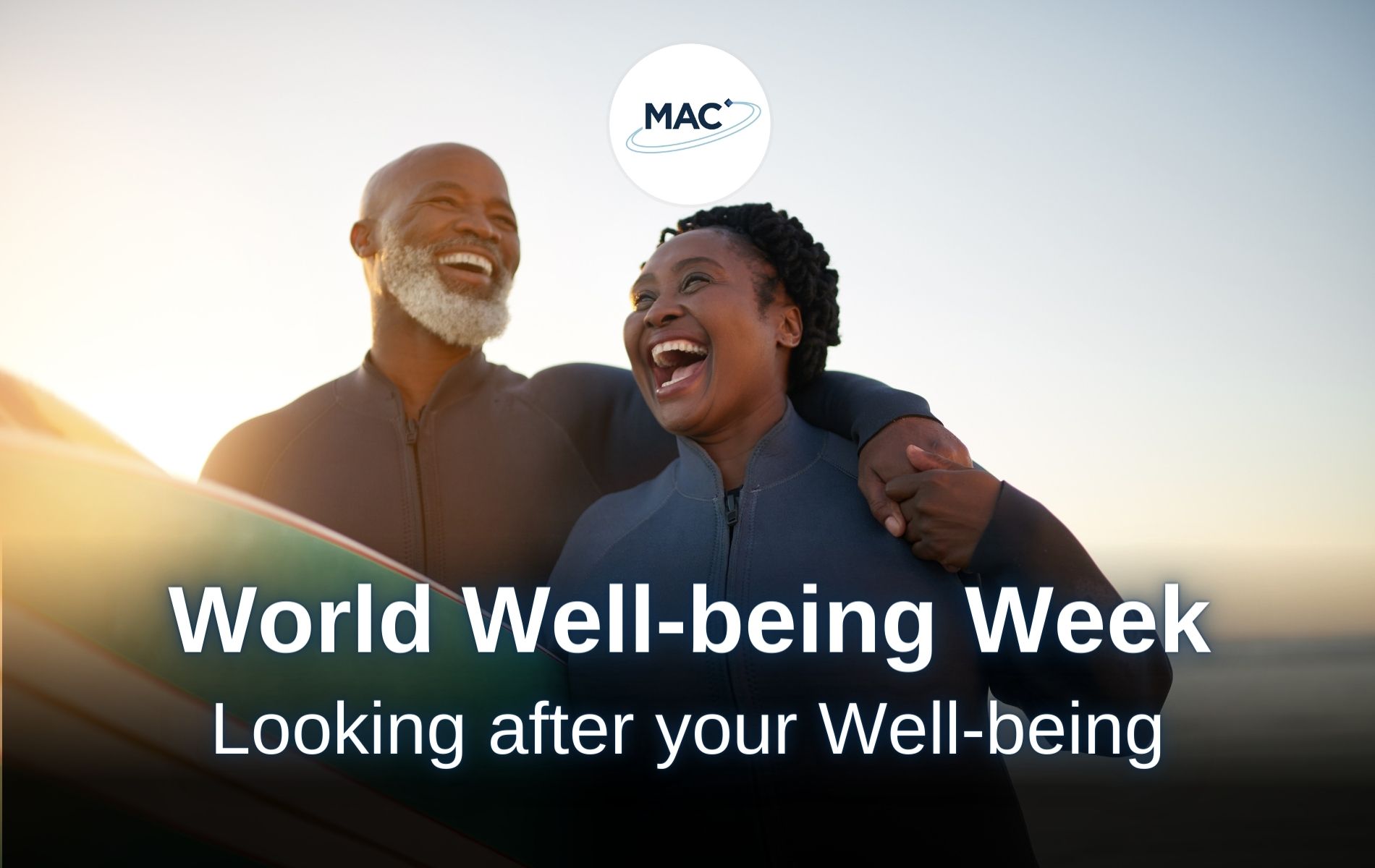This week is World Well-being Week. It’s celebrated during the last week of June every year. This awareness week provides us with the opportunity to celebrate the many aspects of well-being, from meaningful, purposeful work in our communities to looking after our physical, mental, and emotional health.
For this year’s awareness week, we want to share some of our tips to improve your physical and mental well-being.
1. Exercise
For healthy adults, in general, 60 minutes of moderate physical activity should be recommended at least three times per week (for example, brisk walking, gardening, or gentle swimming). Older adults aged 65+ should aim for 150 minutes of moderate aerobic activity every week, which works all the major muscles (legs, hips, back, abdomen, chest, shoulders, and arms).
Regular physical activity is one of the best things you can do for your physical and mental well-being; it improves your brain health, helps to manage your weight, reduces the risk of disease such as a heart attack, and strengthens your bones and muscles. According to the Centres for Disease Control and Prevention, few lifestyle choices have as large an impact on your health as physical activity.
2. Spending time with friends and family
One way to reduce feelings of loneliness, which can be a detriment to both our physical and mental health, is to spend time with friends and family. Spending time with loved ones can also reduce feelings of stress and anxiety, as well as being a source to turn to when we need to talk about our feelings and emotions.
Research conducted in 2022 by the Pew Research Centre reported that 9 out of 10 adults said spending time with family and friends provides them with a level of meaning and fulfilment.
3. Giving up unhealthy habits
Another way of benefiting our physical and mental well-being is by giving up unhealthy habits. For example, giving up smoking can reduce the chances of having a heart attack, improves blood circulation, has the potential to improve fertility, and reduces the chances of having a stroke. According to Public Health England, 83% of deaths from COPD are due to smoking.
Furthermore, a 2018 survey conducted by Health Survey for England showed nearly nine in ten English adults have at least one unhealthy habit. These included those who smoke, drink more than 14 units of alcohol per week, eat fewer than five portions of fruit and vegetables per day, or have low rates of physical activity.
4. Allowing time for ourselves and our hobbies/interests
When we allow time to focus on ourselves and our respective hobbies and interests, we are looking after our mental well-being. Research has shown that having a hobby is linked to lower levels of depression.
Hobbies could include sports and exercise, reading, gardening, or arts and crafts. You could also join a social group or society for shared interests. This could be supporting a sports team, joining a film or book club, or an online group or forum.
5. Taking part in a clinical trial
One way in which we can take an active role in our healthcare is by taking part in clinical research, and help doctors and researchers find new and improved treatment options. MAC Clinical Research is running clinical trials for a variety of health conditions, both physical and mental, as well as healthy volunteer clinical trials.
When you take part in a clinical trial, you’ll receive a full health check-up including checking your blood pressure, blood samples, and an ECG test, by our expert medical teams. By taking part in a MAC clinical trial, you can take an enormous sense of pride in the knowledge that you are helping to identify treatments that could benefit the lives of our future generations. Many of our clinical trials also offer reimbursement payments for your time and commitment, which can further help with financial well-being.
To find out more about MAC Clinical Research, our current studies, and how you can get involved, visit our current studies webpage.




